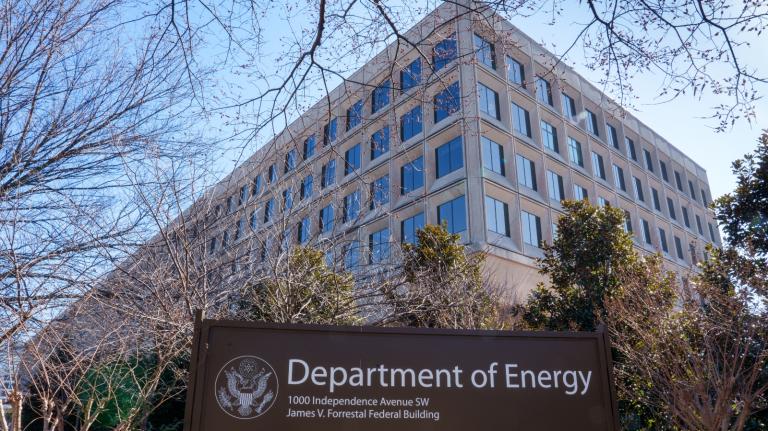 SOLYNDRRAAAAAA!Cross-posted from Climate Progress.
SOLYNDRRAAAAAA!Cross-posted from Climate Progress.
The GOP has apparently succeeded in its goal of throwing the baby out with the bathwater.
The push to do something — anything — to make government investments in clean energy look bad after the Solyndra bankruptcy is hindering the development of some major job-creating solar projects.
The most recent victim is SolarCity, a solar-services provider that was set to develop the largest residential solar project in the world. The company was offered a conditional commitment on Sept. 2 for a $275 million loan guarantee to finance, install, and maintain solar systems on 160,000 military rooftops around the country — effectively doubling the number of residential systems online in the U.S. today.
The project would bring “more than $1 billion of private investment into economically hard-hit military communities,” according to SolarCity CEO Lyndon Rive.
SolarCity has said it would work to employ American veterans and family members for the 750 people needed to complete the project, showing that green jobs do indeed exist. The company has seen extraordinary growth in recent years. After starting in 2006 with just two people, SolarCity has added over 600 employees since 2006. And this latest project will again double the staff.
The conditional commitment for the so-called SolarStrong project was issued days after the Solyndra bankruptcy. It was a piece of good news after a drumbeat of bad developments in the weekend after the Solyndra story broke. Since then, however, the resulting investigation has added a slew of new documentation requirements, making it impossible for SolarCity to meet the deadlines imposed.
In a letter sent last week to three men responsible for the investigation — Republican Reps. Cliff Stearns (Fla.), Ed Whitfield (Ky.), and Fred Upton (Mich.) — SolarCity CEO Lyndon Rive lamented the last-minute changes in document requirements:
Unfortunately, Project SolarStrong, together with the thousands of job years it would create and the benefits it would bring to our country’s military communities, is at risk of becoming an unintended casualty of the controversy over Solyndra.
Rive makes clear in the letter that he supports additional congressional oversight of the loan guarantee program. Indeed, everyone — even those who passionately support the loan guarantee program — agrees that additional oversight is needed after the Solyndra bankruptcy. But onerous requirements thrown on projects in late stages of development are hurting private investment and job creation:
Project SolarStrong’s structuring and its review by the DOE has required the efforts of more than 100 people, thousands of hours of work, and more than $3 million of investment by our company and our financing partners over the last 11 months. Halting the project will mean sacrificing more than $1 billion of private investment into economically hard-hit military communities throughout the United States.
It would also mean the loss of jobs we believe the project would create, many of which would have gone to veterans and the family members of our active duty military servicemen and women. We believe that the valuable work done to move the SolarStrong project to completion should not be lost because of the Solyndra bankruptcy.
With all the talk about burdensome regulations and government overreach, this incident is particularly ironic.
The SolarStrong project is nothing like Solyndra. Solarcity has a proven business model and has been able to raise hundreds of millions of dollars in private capital for other previous projects. It also uses technologies that are cost-competitive and trustworthy. It’s a completely different beast.
If that’s the case, why would they need a loan guarantee? Well, the loan guarantee would help SolarCity finance projects in states it otherwise couldn’t without the backing. The program allows the company to spread projects further around the U.S., thus spreading economic development and job creation.
This is a fairly low-risk project. But it’s ambitious enough to need some backing in order to raise additional private capital. That’s what the loan guarantee is for.
We have the potential to double residential solar PV installations in this country in a few short years while putting hundreds of military personnel to work. It would be a shame to allow this project become collateral damage of political overreach.



